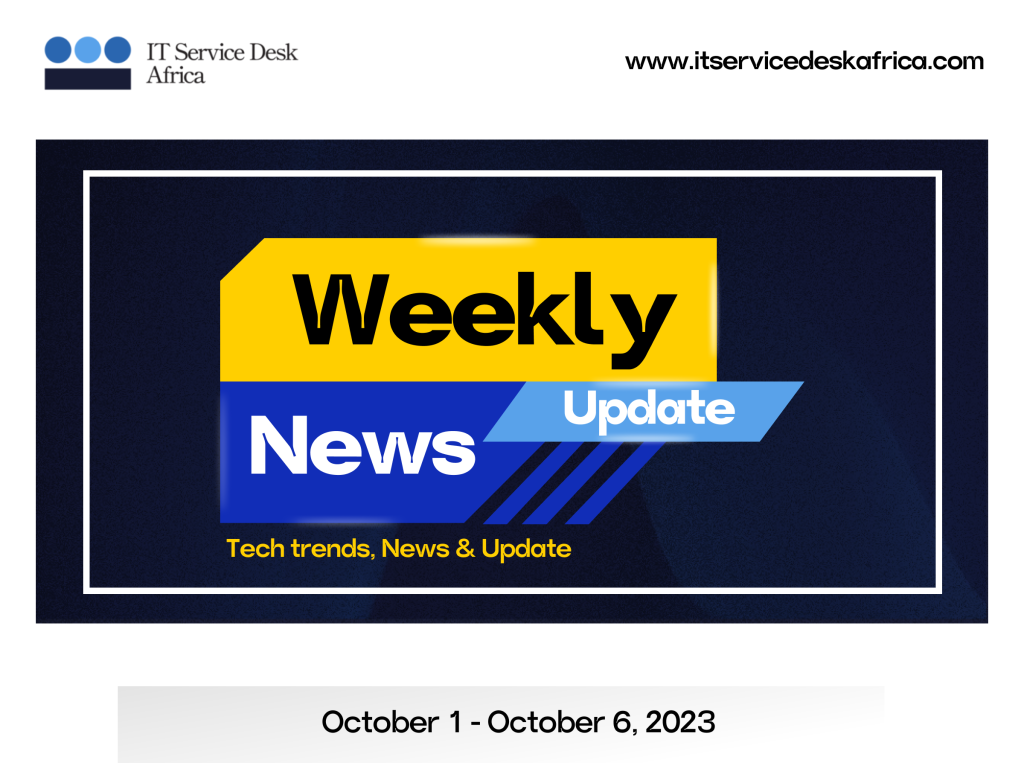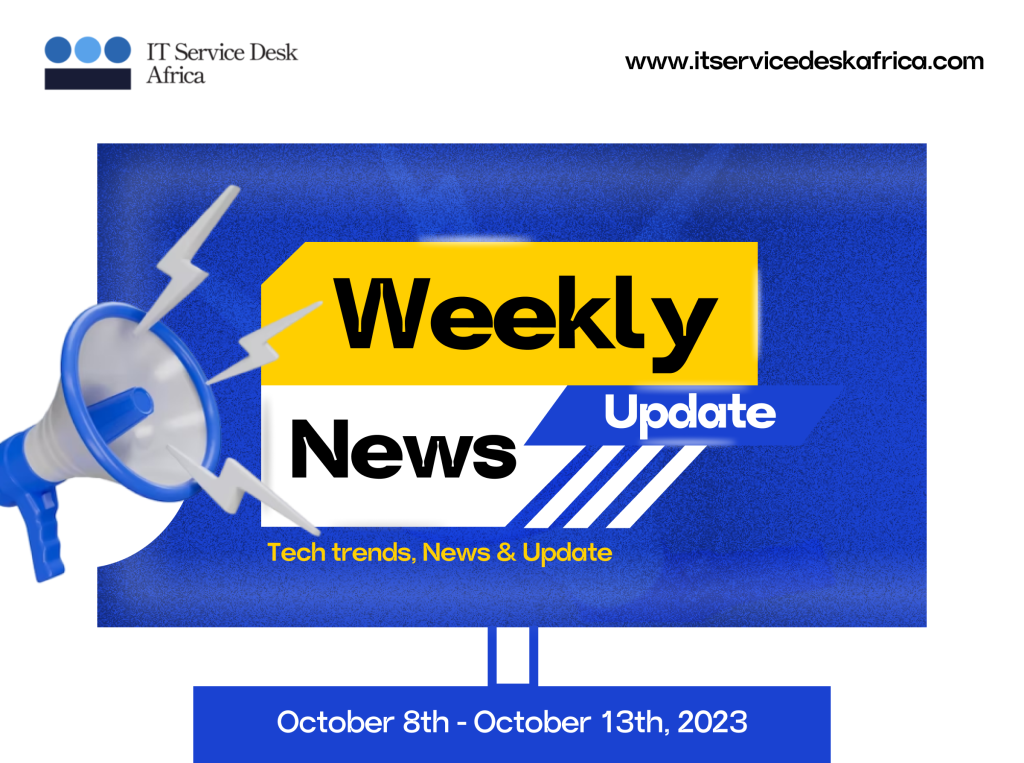FG Set to Launch Cutting-Edge Data Center by May 29th
The Federal Government has announced plans to launch a state-of-the-art data center capable of storing up to 1.4 petabytes of data by May 29, 2024. This move is aimed at enhancing the country’s data management capabilities and promoting digital transformation. The new data center will provide a secure and efficient platform for storing and processing large volumes of data, supporting the government’s digital agenda and driving economic growth.
The data center, which is expected to be one of the most advanced in the region, will play a critical role in supporting the country’s digital economy. It will provide a robust and reliable infrastructure for data storage and management, enabling businesses, organizations, and individuals to store and process large amounts of data efficiently and securely. This will help to drive innovation, improve productivity, and support economic growth.
The launch of the data center is a significant milestone in the government’s digital transformation journey and demonstrates its commitment to leveraging technology to drive economic growth and development.
Lagos Establishes Cybersecurity Operations Centre (CSOC)
The Lagos State Government has taken a significant step forward in protecting its digital infrastructure by establishing a Cybersecurity Operations Centre (CSOC). This cutting-edge facility will serve as the hub for monitoring, detecting, and responding to cyber threats in real time, ensuring the state’s online assets are safe and secure.
The CSOC will employ advanced technologies and a team of expert cybersecurity professionals to identify and mitigate potential threats, reducing the risk of cyber-attacks and data breaches. This proactive approach will help safeguard the state’s critical infrastructure, protect citizen data, and foster a secure environment for businesses and individuals to thrive.
Nigerian Copyright Commission Sues MTN Nigeria for Copyright Infringement
The Nigerian Copyright Commission (NCC) has filed a lawsuit against MTN Nigeria Communications Ltd. and four others for alleged copyright infringement. The commission’s legal team has requested permission from the Federal High Court in Abuja to serve court processes on Karl Toriola, MTN Nigeria’s Chief Executive Officer, through his legal representatives.
The lawsuit alleges that MTN Nigeria used musical works and sound recordings of artiste Maleke as Caller Ring Back Tunes without obtaining the necessary authorization. Additionally, the company is accused of distributing the musical works to its subscribers without permission, thereby infringing on the artiste’s rights. The NCC also claims that MTN Nigeria possessed other copyrighted materials without permission, which is a violation of the Copyright Act.
The alleged offenses are punishable under section 20 (2) (a) (b) and (c) of the Copyright Act, Cap. C28, Laws of the Federation of Nigeria, 2004. The NCC is seeking legal action to protect the rights of creators and owners of intellectual property in Nigeria.
Microsoft and G42 to Build $1 Billion Geothermal-Powered Data Center in Kenya
Microsoft Corporation and G42, a leading artificial intelligence company in the United Arab Emirates, have announced a partnership to build a $1 billion geothermal-powered data center in Kenya. The facility will be located in Olkaria, an area rich in geothermal resources, making it an ideal location for Microsoft’s climate goals.
The data center will have a capacity of 100 megawatts in its first phase and is expected to be operational in two years. The project aims to boost cloud-computing capacity in East Africa, where power outages are common. The partnership demonstrates Microsoft’s commitment to deepening and embedding digital technology in Kenya’s future.
The project will require up to one gigawatt of electricity from the grid, and the full project is expected to be completed in phases. The collaboration is a significant milestone in the growth of digital infrastructure in East Africa and will provide a reliable and sustainable source of power for cloud computing in the region.
The signing of the letter of intent, facilitated by the US and UAE governments, marks a significant step forward in the project’s development. The partnership between Microsoft, G42, and the Kenyan government is expected to drive economic growth and promote digital transformation in the region.
Google Announces Umoja, a New Fiber Optic Cable to Connect Africa to Australia
Tech giant Google has announced plans to build a new fiber optic cable called Umoja, which will connect Africa to Australia, improving internet connectivity on the continent. The cable will be anchored in Kenya and pass through several African countries, including Uganda, Rwanda, the Democratic Republic of the Congo, Zambia, Zimbabwe, and South Africa, before crossing the Indian Ocean to Australia.
The Umoja cable is part of Google’s Africa Connect initiative, which aims to improve internet connectivity and reliability in the region. The new cable will provide a highly scalable route through Africa, with access points that will allow other countries to take advantage of the network. This will enable African countries to more reliably connect with each other and the rest of the world.
The Umoja cable will also incorporate the Google Cloud region in South Africa, ensuring robust cloud service connectivity. Google has partnered with Liquid Technologies to build the terrestrial path of the cable, which will provide a resilient network for a region that has historically experienced high-impact outages. The Umoja cable is a significant investment in Africa’s digital infrastructure and will help to drive economic growth and development in the region.
Maëlle Gavet Steps Down as TechStars CEO Due to Health Reasons
Maëlle Gavet, the Chief Executive Officer of TechStars, has announced her departure from the company, citing health reasons. Gavet’s tenure will officially end at the end of May 2024. David Cohen, co-founder of TechStars, will return as CEO.
During Gavet’s leadership, TechStars made significant strides, investing in over 2,000 startups and raising $2.4 billion in funding for its portfolio companies in 2023 alone. However, the company faced challenges in balancing growth with profitability and experienced strained relationships with corporate partners, resulting in a loss of clients.
Gavet’s health issues are a recurrence of a previous condition, having undergone thyroid surgery 11 years ago to remove cancerous nodules. Unfortunately, her recent checkup revealed new nodules, prompting her to step down from her role to focus on her health.
Gavet’s departure marks the end of an era at TechStars, and her contributions to the company’s growth and success will be remembered. The company will continue to evolve under Cohen’s leadership, building on the foundation established during Gavet’s tenure.
Nigerian Startups Dominate African Funding Landscape
Over the last five years, Nigerian startups have received the largest chunk of funds raised by African startups, accounting for 29% of the total $15 billion investments. This is a significant milestone, demonstrating the country’s emergence as a hub for innovation and entrepreneurship.
Some of the top Nigerian startups that have raised substantial funds in 2023 include:
– Moove ($76 million)
– Sabi ($38 million)
– LemFi ($33 million)
– Helium Health ($30 million)
– Nomba ($30 million)
– Remedial Health ($12 million)
– Traction ($6 million)
– FairMoney ($5.39 million)
– OnePipe ($4.8 million)
– Termii ($3.65 million)
These startups are revolutionizing various industries, from fintech to healthcare, and their success is a testament to the potential of Nigeria’s startup ecosystem. As the country continues to produce innovative solutions, it’s likely that Nigerian startups will remain a significant force in the African funding landscape.
Bolt Introduces Flexible Pricing System
Ride-hailing giant Bolt has introduced a flexible pricing system, allowing passengers to offer higher fares to drivers during periods of high demand. This bidding system aims to incentivize drivers and increase riders’ chances of getting rides during peak hours. Drivers can negotiate prices with riders, earning more while standard commission applies. The base fee plus algorithmic pricing may increase prices during peak demand, but the bidding model allows for fair price negotiation, despite consistent pricing challenges.



